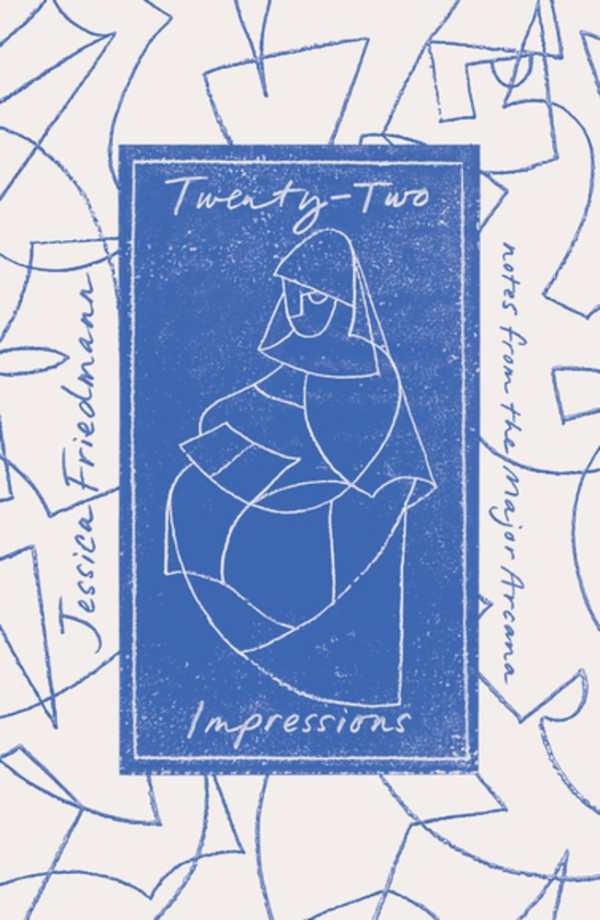Twenty-Two Impressions
Notes from the Major Arcana
Jessica Friedmann’s essay collection Twenty-Two Impressions sheds novel light on the potential of the tarot to guide how people move through and experience life.
The text opens with an in-depth exploration of the history of the tarot, which has its roots in playing cards; its connection to occultism did not come until centuries after its inception. Friedmann pulls from multiple sources to track the creation and development of the tarot. Details surrounding the illustrations across time are of particular interest, as they reflect shifts in social attitudes and popular culture. Friedmann’s own introductory deck was a reproduction of the Tarot de Marseilles, originally printed in fifteenth-century Italy using woodcuts.
Using the major arcana—the twenty-two named cards within a seventy-eight-card tarot deck that are ascribed higher influence within a reading—as their structure, Friedmann’s essays draw connections between the cards and broader concepts, world events, and personal experiences. Some connections are straightforward—the bad luck of a burglary is related to the Wheel of Fortune—while others demand deeper consideration, as with the essay inspired by Strength, which opens with Friedmann’s reticence to welcome a new dog after the passing of a beloved one. Friedmann ably maneuvers through these unexpected turns, drawing every essay to a salient point before its close.
Friedmann is an honest narrator who acknowledges and relates to spiritualism skeptics. She admits to having relegated the tarot to a “spectacle” of “purple crushed velvet and pentagram necklaces” at first. “When something is simply not for you, it is easy to dismiss it,” she remarks. But Friedmann does not demand belief in the tarot; she only urges openness to the universal lessons and shared human history it represents.
A misunderstood cultural phenomenon is used as a window to the human experience in the personal essay collection Twenty-Two Impressions.
Reviewed by
Danielle Ballantyne
Disclosure: This article is not an endorsement, but a review. The publisher of this book provided free copies of the book to have their book reviewed by a professional reviewer. No fee was paid by the publisher for this review. Foreword Reviews only recommends books that we love. Foreword Magazine, Inc. is disclosing this in accordance with the Federal Trade Commission’s 16 CFR, Part 255.

